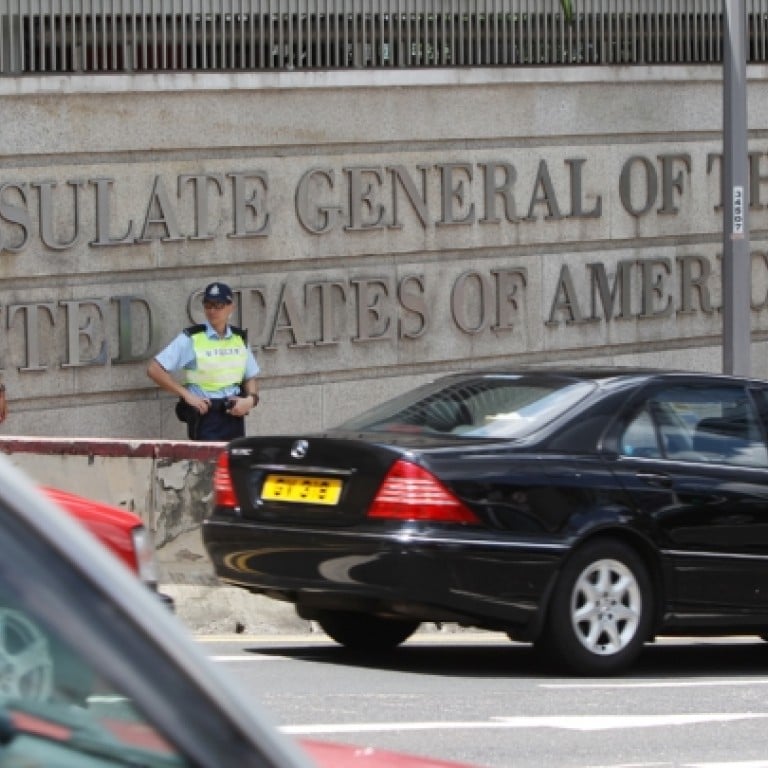
Hong Kong bid for visa-free access to US in jeopardy after Snowden departure
State Department official warns that Edward Snowden's departure will have an impact
Hong Kong’s refusal to detain Edward Snowden may yet have consequences for the city’s residents.
In a case of exquisite bad timing, the row over Hong Kong’s decision to let the NSA leaker fly to Russia - in spite of a US extradition request - came at the same time the US Senate was poised to vote on a massive immigration reform bill. Buried deep in the 1,076-page bill is a long-awaited amendment making Hong Kong eligible to join the US Visa Waiver Program, which allows visitors into the US for 90 days with their passports only.
But US State Department spokesman Patrick Ventrell suggested on Tuesday that the waiver, which has been the subject of years of lobbying by Hong Kong, may now be in peril. He had been asked to describe the repercussions of Snowden’s unimpeded departure on Sunday from Hong Kong, on both Sino-US relations and the visa waiver amendment.
“Clearly, these issues have an impact when we have a breakdown on co-operation on such a key issue,” Ventrell told the daily press briefing in Washington.
His comment came a day after White House spokesman Jay Carney slammed the decision to let Snowden leave Hong Kong, saying it “unquestionably has a negative impact on the US-China relationship”. “We are just not buying that this was a technical decision by a Hong Kong immigration official. This was a deliberate choice by the government to release a fugitive despite a valid arrest warrant,” Carney said.
The Hong Kong amendment was inserted into the immigration bill by Senator Mazie Hirono, a Democrat from Hawaii. The amendment was approved by the US Senate Judiciary Committee on May 16, by 14 votes to 4. Those backing the amendment included a bipartisan array of some of the most powerful names in the senate, among them Democrats Dianne Feinstein and Chuck Schumer and Republicans Orrin Hatch and Lindsey Graham.
The four opponents were all Republicans, including Ted Cruz, who has been one of the fiercest opponents of the entire bill. Cruz, one of the Tea Party movement’s most powerful voices, said earlier this month he was reserving judgement on whether Snowden was a patriot or a traitor.
The Senate was expected to vote on the immigration bill this week, perhaps as soon as Thursday [June 27]. But even if, as expected, it gets through the senate, its fate is far from secure. The bill would still need approval by the Republican-ruled House of Representatives.
House speaker John Boehner warned on Wednesday that House Republicans would not feel bound by any Senate immigration bill, regardless of support by some of his party’s senators, and would go about crafting their own version of the legislation. And even if a bill deeming Hong Kong eligible for the coveted waiver is approved by both House and Senate, the measure could be vetoed by US President Barack Obama. Hong Kong’s eventual membership could also be denied, or later suspended, by his security officials.
Hirono’s spokesman, Nathan Click, said Hong Kong would need to meet stringent requirements to join the programme, including agreeing to share information and honour extradition requests.
None of the other 13 senators who supported the Hong Kong amendment would agree to discuss the impact of the Snowden case on their positions, and nor would any of their spokespersons. The four senators who voted against the measure were also asked for comment, but did not respond.
The US consulate in Hong Kong said: “We have no comment on legislation.”
Under current regulations, Hong Kong residents are treated the same as mainlanders wanting to travel to the United States. The US consulate moved to streamline the process in March, but Hongkongers must still undergo an interview before being approved for travel.
Taiwanese citizens were granted visa-free access last year, while Japan, South Korea and Singapore also benefit from the visa-free programme. Joining the 37 countries that are part of the visa-waiver scheme requires an initial nomination from the US Homeland Security Department. A task force then examines every aspect of the bid, including compliance with extradition requests.
A spokesman for the US consulate in Hong Kong said: “We have no comment on the legislation.”
Roy Chung Chi-ping, one of the leaders of a recent delegation to the United States from the Better Hong Kong Foundation, said he had received a positive response when discussing the visa-waiver programme with lawmakers and government officials - before Snowden was allowed to leave Hong Kong.
The group arrived in the US on June 10, the day Snowden revealed he was the man behind the cybersnooping leaks.
Ronnie Chan Chichung, co-leader of the 13-strong delegation, said: “I’m not worried that the US will change its mind. Visa-free visits for Hongkongers to the US are not only beneficial for us, but also for them.”
Concern about Hong Kong’s possible admission to the scheme was raised this week by a number of conservative US publications. The Weekly Standard on Monday quoted an unidentified Senate aide as saying: “Hong Kong historically has had a close economic relationship with the US so this amendment made a lot of sense when it was offered. But after they undermined our national security and let Snowden leave yesterday, are we really going to reward the Hong Kong government with Visa Waiver access?”
In 2011, about 129,000 Hongkongers travelled to the United States.
Additional reporting by Johnny Tam and Ian Young

